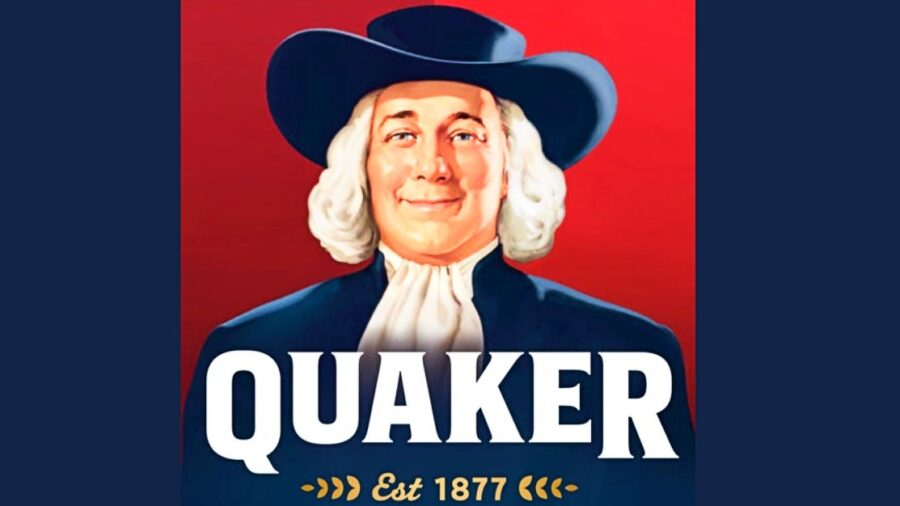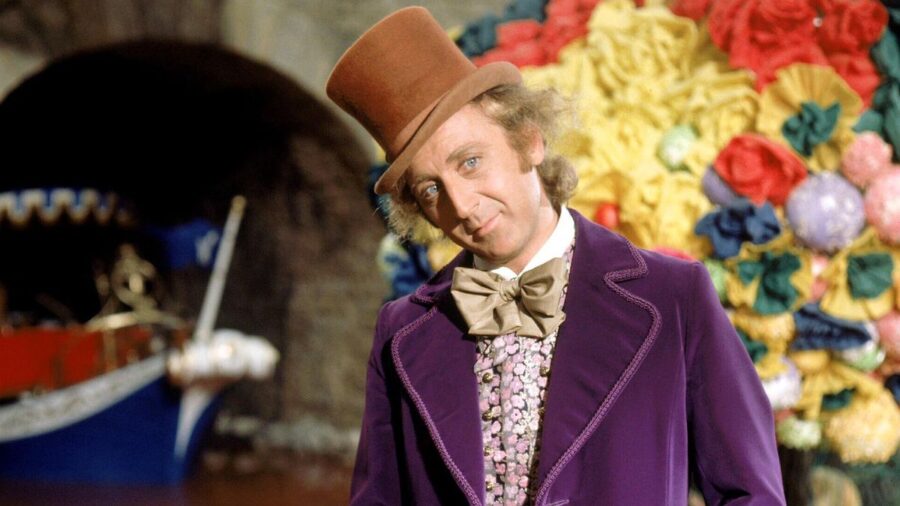Willy Wonka & The Chocolate Factory Was Financed By Oats
The 1971 film Willy Wonka & the Chocolate Factory was financed by the Quaker Oats Company to promote an upcoming candy bar.

When most people think of Roald Dahl’s most famous creation, the master candymaker Willy Wonka, the first thing that comes to mind is undoubtedly chocolate. After all, the reclusive weirdo/genius (who has been portrayed by Gene Wilder, Johnny Depp, and soon, Timothee Chalamet) had a whole factory devoted to it and other sundries like Everlasting Gobstoppers and gum that turns you into a hideous human-blueberry hybrid. But in a very odd twist, the iconic 1971 film Willy Wonka & the Chocolate Factory was financed by the sale of the much more prosaic oats, or, more specifically, the Quaker Oats Company.
As detailed in The Chicago Tribune, Willy Wonka & the Chocolate Factory (adapted from Dahl’s 1964 novel Charlie and the Chocolate Factory) was financed entirely by the Quaker Oats Company, at the time, an independent, Chicago-based food company specializing in the production of oat-based breakfast cereals and definitely not the production of musical light-comedy films. However, at the time, Quaker Oats was interested in getting into the candy business, which led it into the movie business.
A film producer named David L. Wolper became interested in adapting the Willy Wonka story and persuaded Quaker Oats to not only purchase the rights to the book but to fully fund the movie essentially as a promotional gimmick for its new candy line. It might seem counter-intuitive to make an entire film as advertising for a candy bar that has not actually been released yet, but it appears that Wolper was an extremely persuasive person.

For maximum Willy Wonka synergy, Quaker Oats actually went so far as to rebrand its candy subsidiary company the “Willy Wonka Candy Company,” while celebrities as varied as Fred Astaire, Peter Sellers, and every member of Monty Python were considered for the lead role. Ironically, although Willy Wonka & the Chocolate Factory owes its existence to Quaker Oats’ desire to develop a candy bar, things did not pan out that way for the company.
Although Quaker Oats did indeed develop a Wonka Bar, apparently the company was not satisfied with the resulting product and it was on shelves for only a short time around the release of the original film. While the entire Willy Wonka film was supposed to be a weird promotional tie-in for the candy, it was barely available to the public; the Willy Wonka Candy Factory was eventually sold to Nestle, which did produce a new Wonka bar, but not until the early 2000s.
To date, Willy Wonka & the Chocolate Factory is the only known film produced primarily by the sale of oats, for the sale of candy bars. Quaker Oats is now owned by PepsiCo, while the film was critically well-received (except by Roald Dahl, who loathed everything from the music to the optimistic tone to Gene Wilder’s performance) but a financial disappointment.
However, in the decades since then, Willy Wonka has become as much a fixture of pop culture as oats are to the breakfast table. A Tim Burton “reimagining” of the film was released in 2005, while Timothee Chalamet will give us the origin story of young Wonka that presumably someone asked for. This time around, it seems Quaker Oats has decided to steer clear.












